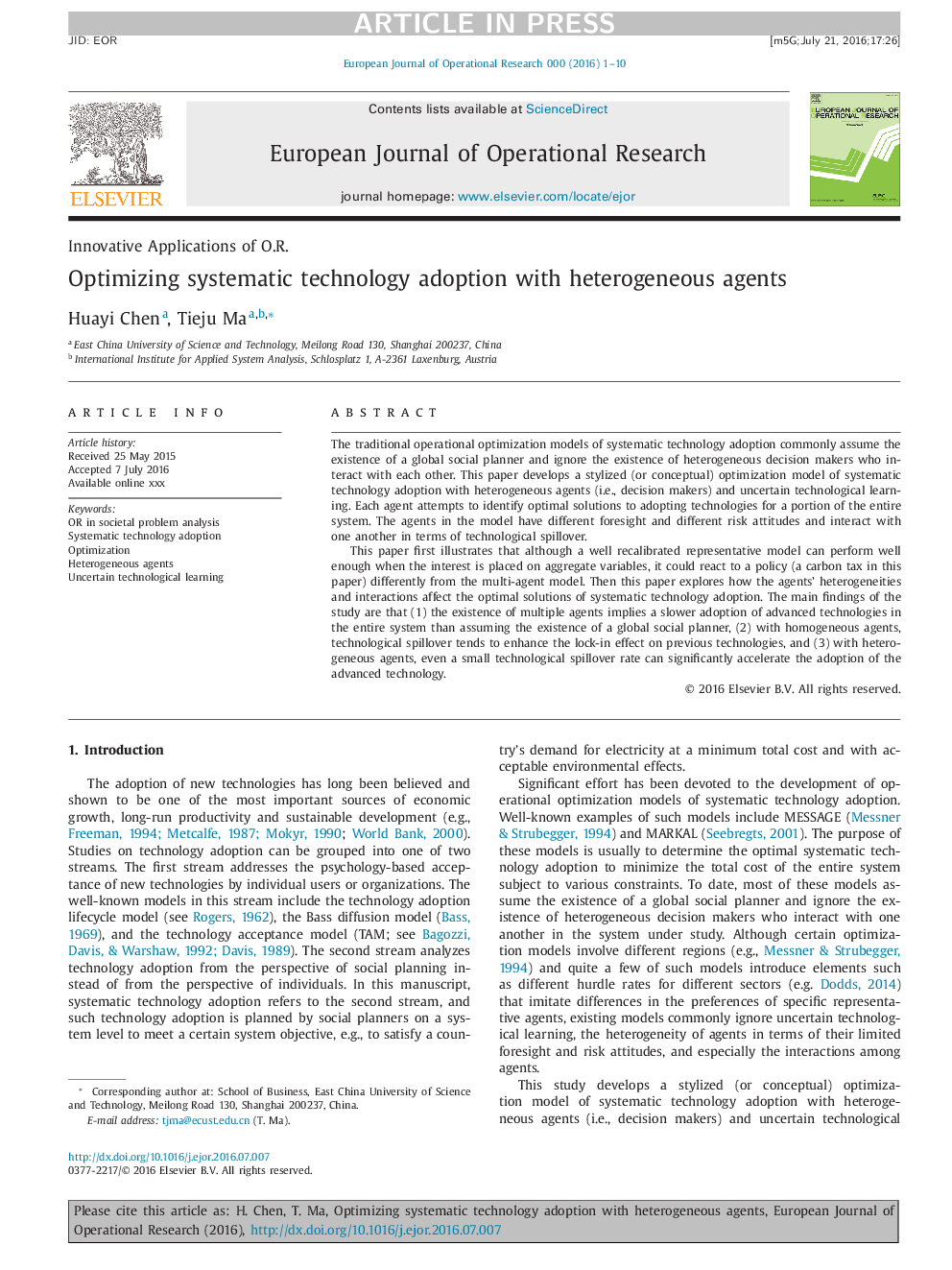| Article ID | Journal | Published Year | Pages | File Type |
|---|---|---|---|---|
| 4960138 | European Journal of Operational Research | 2017 | 10 Pages |
Abstract
This paper first illustrates that although a well recalibrated representative model can perform well enough when the interest is placed on aggregate variables, it could react to a policy (a carbon tax in this paper) differently from the multi-agent model. Then this paper explores how the agents' heterogeneities and interactions affect the optimal solutions of systematic technology adoption. The main findings of the study are that (1) the existence of multiple agents implies a slower adoption of advanced technologies in the entire system than assuming the existence of a global social planner, (2) with homogeneous agents, technological spillover tends to enhance the lock-in effect on previous technologies, and (3) with heterogeneous agents, even a small technological spillover rate can significantly accelerate the adoption of the advanced technology.
Related Topics
Physical Sciences and Engineering
Computer Science
Computer Science (General)
Authors
Chen Huayi, Ma Tieju,
